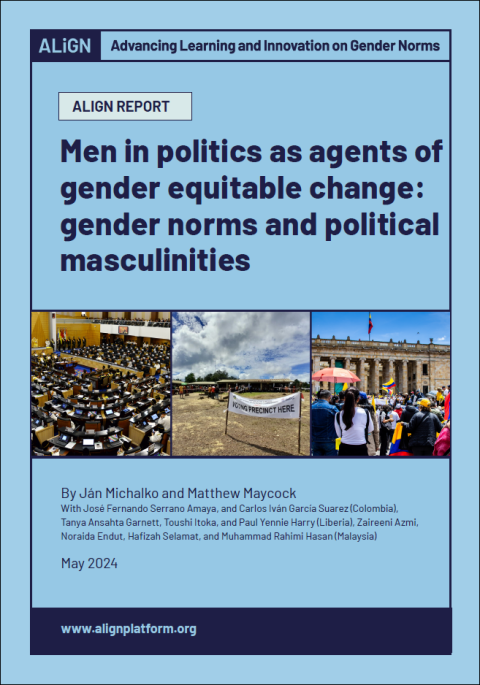
- Blog
- 10 February 2025
Why online safety policies and digital advocacy are essential for women’s political participation
- Author: Annelies Coessens
- Published by: ALIGN
Recent changes to Meta’s policies, whereby they have eased restrictions on certain types of abusive and harmful content, have raised alarm bells about the future of digital safety. This shift leads towards a more hostile environment for women, LGBTQ+ people, and other marginalised groups, particularly if they have a public profile.
Increasingly political office requires a significant public profile, calling into question whether, given the effects of an increasingly aggressive online environment, the full participation of diverse communities is possible. And yet diverse political participation is necessary in fully functioning democracies.
Women's participation in politics is vital for a healthy democracy, not only does it bring dynamic and original perspectives and ideas, but importantly it grants women the power to push for priorities, policy and practical action. Yet women remain underrepresented in politics across Europe: on average, they account for just 32% of today’s elected local officials, and only 17.4% of the region’s mayors.
The path to political participation for women is already fraught with challenges. Added to this are the actions of online trolls whose uninvited political statements are wielded alongside intimidation and constitute violence. Whether an explicit intent or not, the result is a political context where women are unable to operate effectively and where elected representatives are maligned and threatened. This manifests in an inhospitable political environment, where women are increasingly portrayed as being unfit to hold their positions. Online anti-gender actors enact misogyny which limit women's participation in politics and decision-making, adding to their exclusion from public life. Paradoxically this reality underscores the urgent need for more women in politics, but the toxic environment discourages women from aspiring to, or staying within, political life.
The failure of current online spaces for democratic participation
Without a strong digital presence, women cannot function in politics. They cannot campaign, win political office or reach large audiences. Meanwhile, the ability to interact online has become an essential component of electoral success. This puts women at a disadvantage by turning online hostility into unfair electoral competition, as women candidates, in particular, are less likely to win if they restrict their campaign activities to avoid harassment. Once in office and subjected to hostile online environments, women self-censor and limit their online engagement. Their ability to connect with constituents, the general public and other politicians is limited, and they miss out on opportunities to share their ideas and engage in political debates, and as a result their voices and perspectives are often absent from critical decision-making processes. Ultimately, they may leave public office altogether.
Women politicians experience targeted online abuse, including threats of violence, misogynistic slurs, image-based abuse (such as deep fakes), and disinformation campaigns designed to discredit their leadership and perpetuate harmful gender norms about their capacity to lead. For example, British Labour MP, Jess Phillips, faces relentless online abuse, including rape threats, whenever she challenges misogynistic behaviour in political spaces. Despite reporting these realities – which include threats to individuals – social media platforms often fail to act.
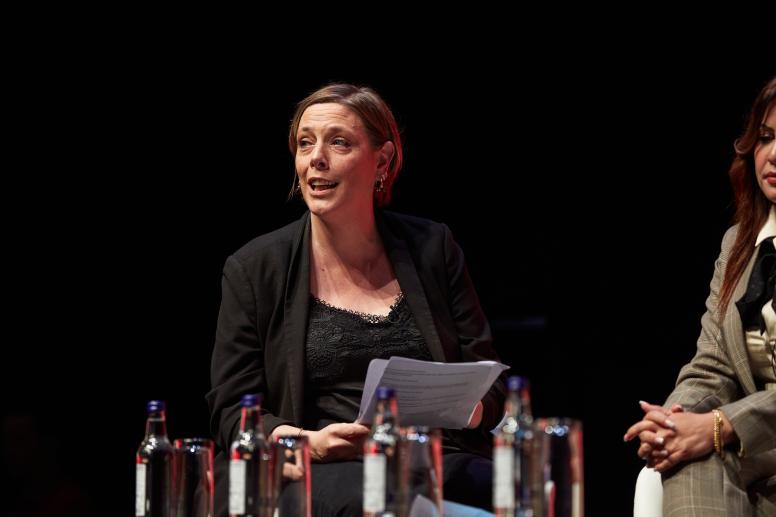

Women politicians experience targeted online abuse, including threats of violence, misogynistic slurs, image-based abuse (such as deep fakes), and disinformation campaigns designed to discredit their leadership and perpetuate harmful gender norms about their capacity to lead.
These attacks go beyond the individual to undermine the broader political environment. The Women in Politics study, published by the Council of European Municipalities and Regions, highlights the barriers women face in local and regional governments, including the impact of cyberviolence. Its findings confirm the importance of digital safety and advocacy, revealing that 29% of female elected representatives have experienced cyberviolence during their career. Such violence exacerbates the under-representation of women, particularly younger politicians: 67% of women aged 24 years or younger who have experienced any form of violence have faced cyberviolence, which can undermine and deter their political participation from its earliest stages.
Apart from the immediate effect of critically reducing and limiting women’s political voice, ultimately, the digital exclusion of women politicians reinforces existing gender inequalities and norms in political representation and engagement. Norms that already condone or trivialise harassment, are further strengthened by the failure of Meta and others to act, thereby perpetuating unequal power dynamics and promoting the notion that politics is a male domain.
How can we create safer and inclusive digital spaces?
The regulation of digital space is inherently complex and, if not safeguarded, can be misused by non-democratic actors. The recent changes in Meta’s policies show the limitations of self-regulation, and every attempt to persuade these platforms to take action on their own has proven fruitless.


The adoption of the first ever European Union directive on combating violence against women, including cyberviolence such as online sexual harassment and cyber bullying, calls for stronger legal frameworks to address online abuse. This is a vital step, given the impact of digital harassment on women politicians, and must be enforced in the face of external pressure from the USA. The creation of safer online environments is an urgent priority for equitable political representation. Digital advocacy and stronger online safety policies can play a transformative role:
- First, social media platforms/tech giants need to be held responsible for filtering and removing harmful content and developing effective reporting procedures: they should not remove the very policies that aim to protect everyone from online violence.
- Second, while governments have a role to play in ensuring safe online spaces, society at large also has a responsibility to make online spaces safe. Raising awareness through digital advocacy can help to challenge misogynistic norms, and encouraging digital literacy might help to change societal attitudes towards online behaviour.
- Third, all levels of governments need to provide legal, psychological and technical assistance to women and disadvantaged groups who have experienced any form of violence.
- Finally, while we need to support survivors, we cannot talk about safe online spaces without addressing the perpetrators and their ‘need’ for collective online belonging. We need male allies and role models who can break this cycle by calling out and challenging online abuse.
Democracy is backsliding in Europe, with 14 nations seeing declines in their democratic scores in 2023 and only six showing improvements. Women's full political and economic participation is essential for a healthy democracy. This is under threat from many quarters, including rising violence against women in politics. Digital spaces should empower women, not silence them, and an attack on any female politician is a warning that should mobilize, rather than deter, other women, marginalised groups and indeed men, to protest at their treatment. With government action and legal rules and protection, society can learn to rebuke and reject online violence. Such attacks cannot, and should not, be ignored.


About the author
Annelies Coessens (she/her) is a dedicated advocate for gender equality, diversity, and migration/inclusion. She is the Policy Officer for the gender equality, diversity and migration portfolios at the Council of European Municipalities and Regions (CEMR), developing the work in these fields in synergy with their member associations at the local and regional level. Her current policy and advocacy work focuses mainly on combatting violence against women in politics.
Share this blog
5 minute read: Why online safety policies and digital advocacy are essential for women’s political participation -> new ALIGN blog out now: alignplatform.org/resources/blog-why-online-safety-policies-essential-for-women-political
- Countries / Regions:
- Global
Related resources
Report
3 December 2025
Published by: ALIGN, Data-Pop Alliance

Report
28 November 2025
Published by: ALIGN, development Research and Projects Centre

Blog
10 November 2025
Published by: ALIGN

Briefing paper
5 November 2025
Published by: ODI Global, ALIGN

Report
20 October 2025
Published by: ODI Global

Report
21 August 2025
Published by: ODI Global, CIEDUR

Briefing paper
1 March 2025
Published by: Better Politics Foundation
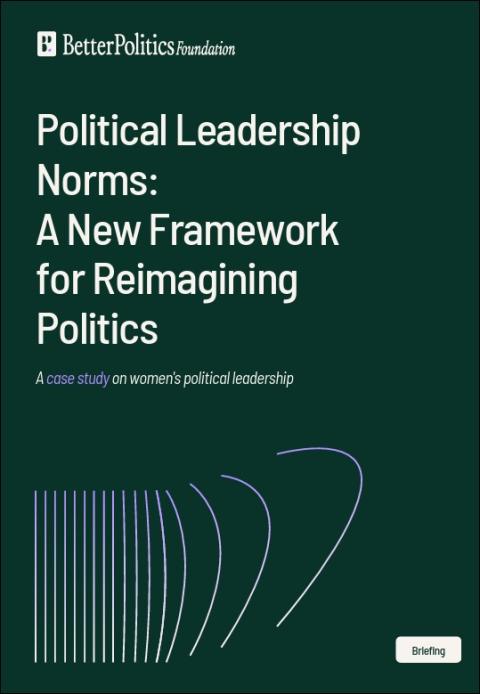
Blog
19 December 2024
Published by: ALIGN

Report
21 October 2024
Published by: ALIGN
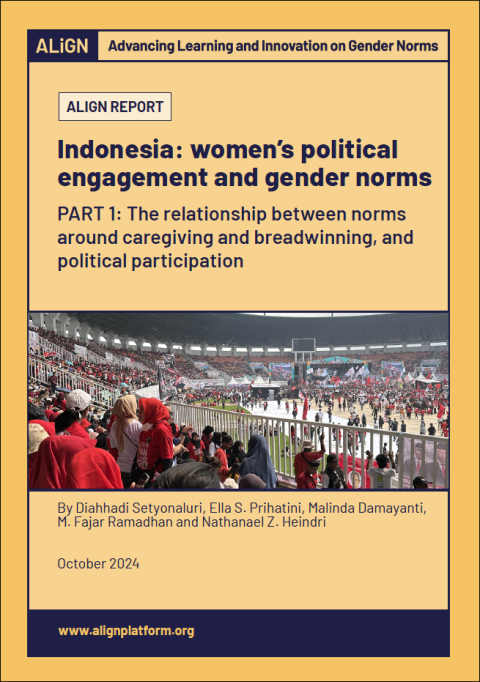
Blog
14 October 2024
Published by: ALIGN

Blog
28 May 2024
Published by: ALIGN
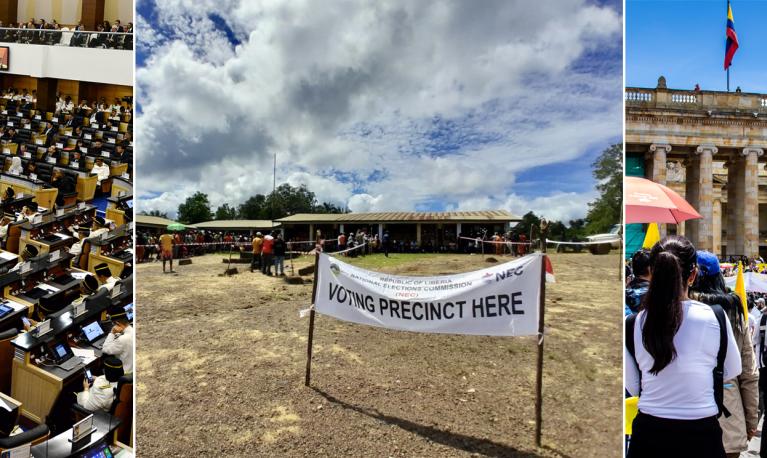
Report
28 May 2024
Published by: ALIGN
